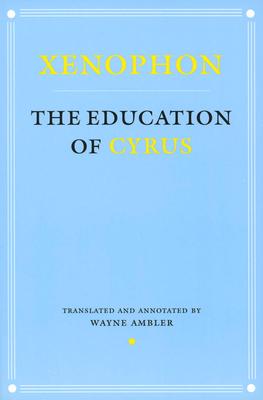Xenophon's masterpiece, The Education of Cyrus, is a work that was admired by Machiavelli for its lessons on leadership. Also known as the Cyropaedia, this philosophical novel is loosely based on the accomplishments of Cyrus the Great, founder of the vast Persian Empire that later became the archrival of the Greeks in the classical age. It offers an extraordinary portrait of political ambition, talent, and their ultimate limits.The writings of Xenophon are increasingly recognized as important works of political philosophy. In The Education of Cyrus, Xenophon confronts the vexing problem of political instability by exploring the character and behavior of the ruler. Impressive though his successes are, however, Cyrus is also examined in the larger human context, in which love, honor, greed, revenge, folly, piety, and the search for wisdom all have important parts to play.Wayne Ambler's translation captures the charm and drama of the work while also achieving great accuracy. His introduction, annotations, and glossary help the reader to appreciate both the engaging story itself and the volume's contributions to philosophy.

Xenophon's masterpiece, The Education of Cyrus, is a work that was admired by Machiavelli for its lessons on leadership. Also known as the Cyropaedia, this philosophical novel is loosely based on the accomplishments of Cyrus the Great, founder of the vast Persian Empire that later became the archrival of the Greeks in the classical age. It offers an extraordinary portrait of political ambition, talent, and their ultimate limits.The writings of Xenophon are increasingly recognized as important works of political philosophy. In The Education of Cyrus, Xenophon confronts the vexing problem of political instability by exploring the character and behavior of the ruler. Impressive though his successes are, however, Cyrus is also examined in the larger human context, in which love, honor, greed, revenge, folly, piety, and the search for wisdom all have important parts to play.Wayne Ambler's translation captures the charm and drama of the work while also achieving great accuracy. His introduction, annotations, and glossary help the reader to appreciate both the engaging story itself and the volume's contributions to philosophy.